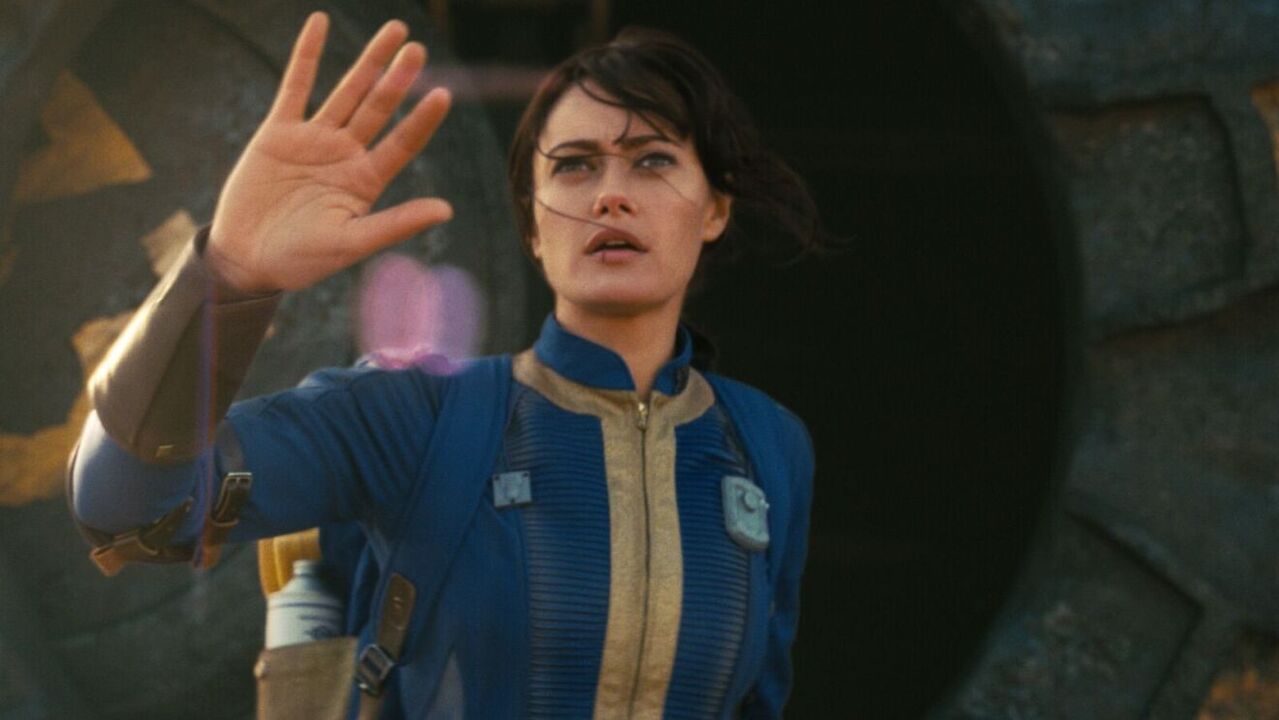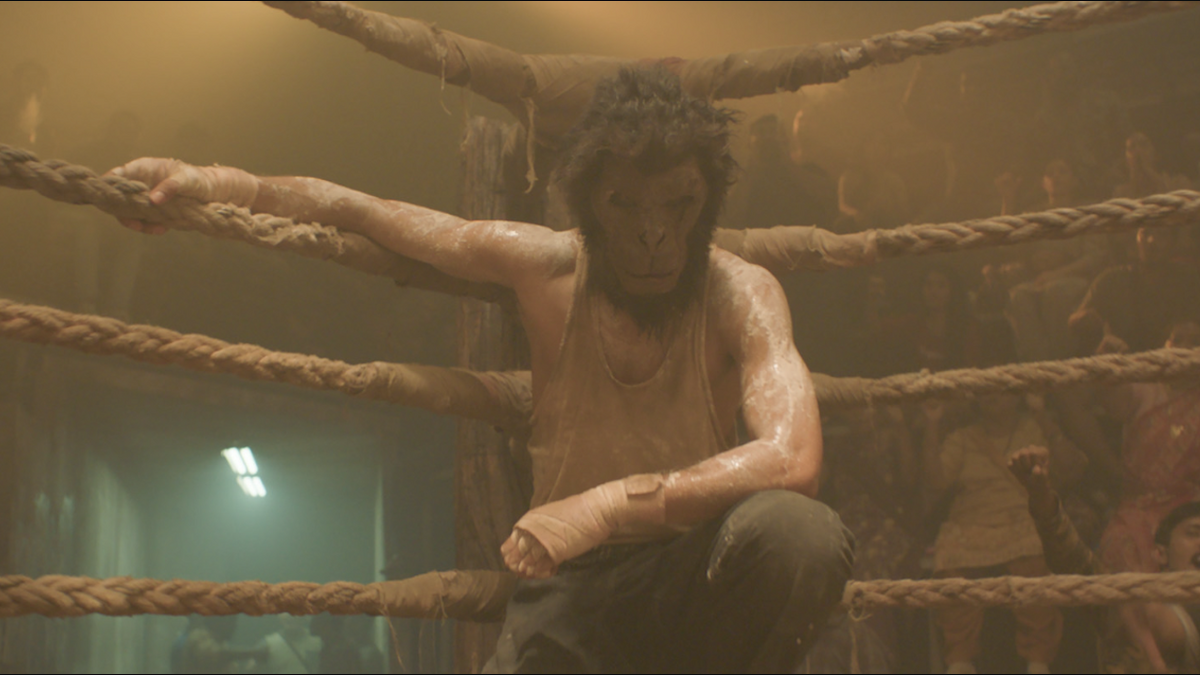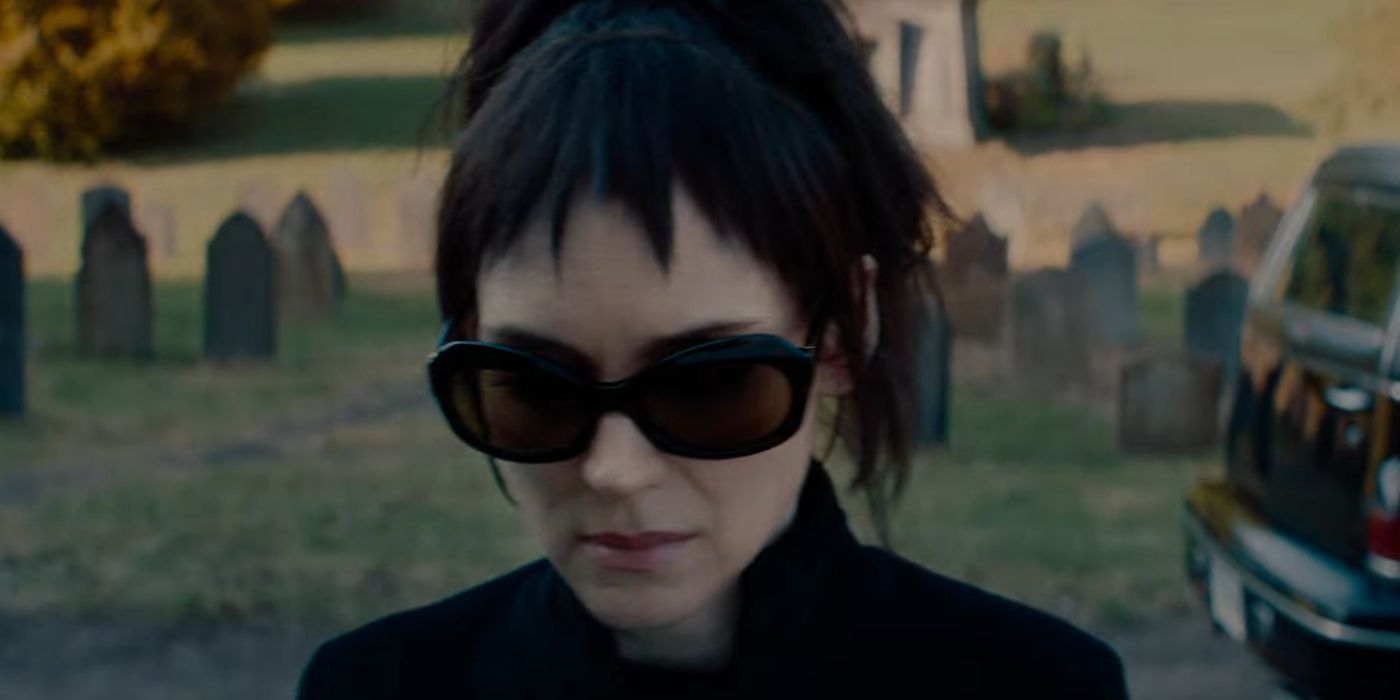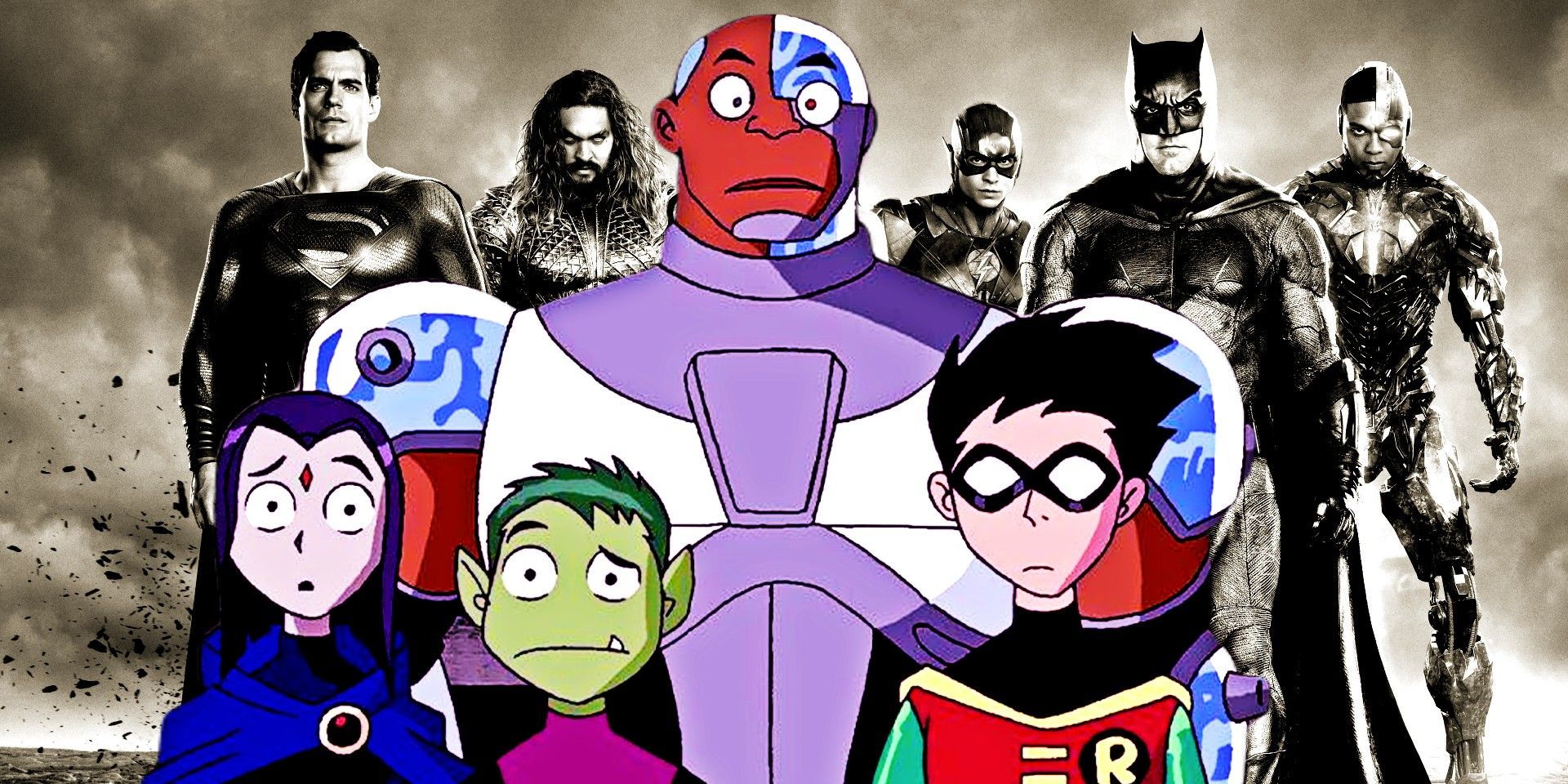Amazon aims to emulate the triumph of HBO’s “The Last of Us” by developing their own major video game adaptation, enlisting “Westworld’s” Jonathan Nolan and Lisa Joy to oversee the new “Fallout” series. Similar to “The Last of Us,” the setting in “Fallout” depicts a post-apocalyptic world where society has collapsed due to a nuclear war, compelling survivors to seek refuge underground in “Vaults.” Within these Vaults, remnants of the once-great society are preserved, albeit blindly, reflecting on and upholding its ideals.
Exploring a Satirical Post-Apocalyptic World
Discussing the concept of creating a TV series to complement the unique world of each Fallout game, Nolan emphasized the importance of the series existing alongside the games rather than merely representing them. Conversations with Graham and Geneva revolved around a wide range of morally complex films that have influenced them. However, Nolan acknowledged the distinct experience players have when interacting with a game, making the adaptation process particularly challenging. Despite adapting various forms of media in his career, including comic books and novels, Nolan highlighted the intricate nature of adapting interactive content.
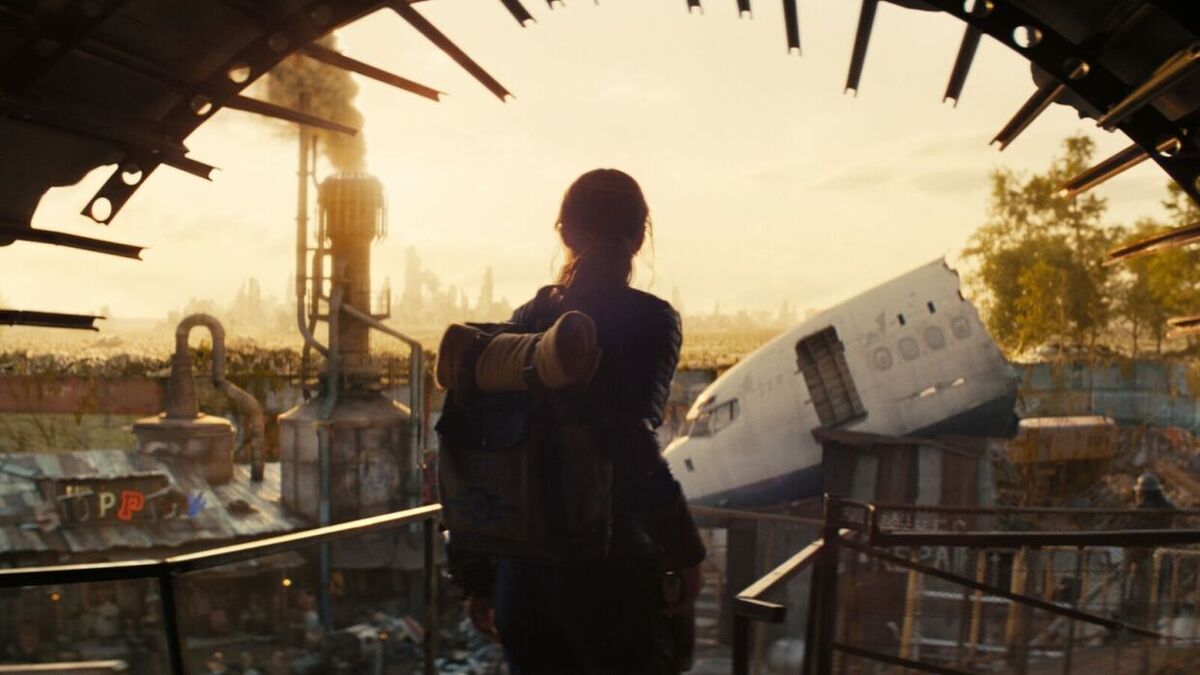
Satirical End World Exploration: Nolan’s Perspective
Collaborating with his brother Christopher on the iconic Dark Knight trilogy, Nolan reflected on his journey in the Batman universe. He expressed how navigating a realm with numerous iterations allowed him to carve his unique narrative path. Transitioning to a project like Fallout, an expansive open-world RPG, Nolan acknowledged the intricate nature of player choices. The game’s vast possibilities, from moral decisions to faction allegiances, posed a significant challenge in translating such freedom into a linear storyline.
Recognizing the need to embody the player’s decision-making role, Nolan assumed a hands-on approach to ensure the project’s success as an adaptation. He emphasized the serendipity of working with a remarkably talented cast, reminiscing about pivotal moments with characters like Ella and Aaron. These instances evoked a sense of control akin to guiding the narrative direction, mirroring the player’s agency in the gaming realm.
Exploring Three Narratives in a Post-Apocalyptic Setting
To delve into the diverse perspectives and narratives within this Fallout tale, the approach taken was to follow distinct characters on separate journeys. Nolan elaborated on this approach, stating, “We aim to present three unique viewpoints of this world, capturing the essence of the game from varied angles. One character’s choices lean towards negativity, another embodies a savior mentality, and the third character finds themselves in a moral gray area.”
Discussing the character dynamics, Nolan emphasized, “Each game introduces a fresh cast of characters and a unique storyline. Despite these differences, there are subtle connections that tie the games together. This cohesive narrative approach is a standout feature of the series, aligning with the established canon while offering fresh perspectives.”
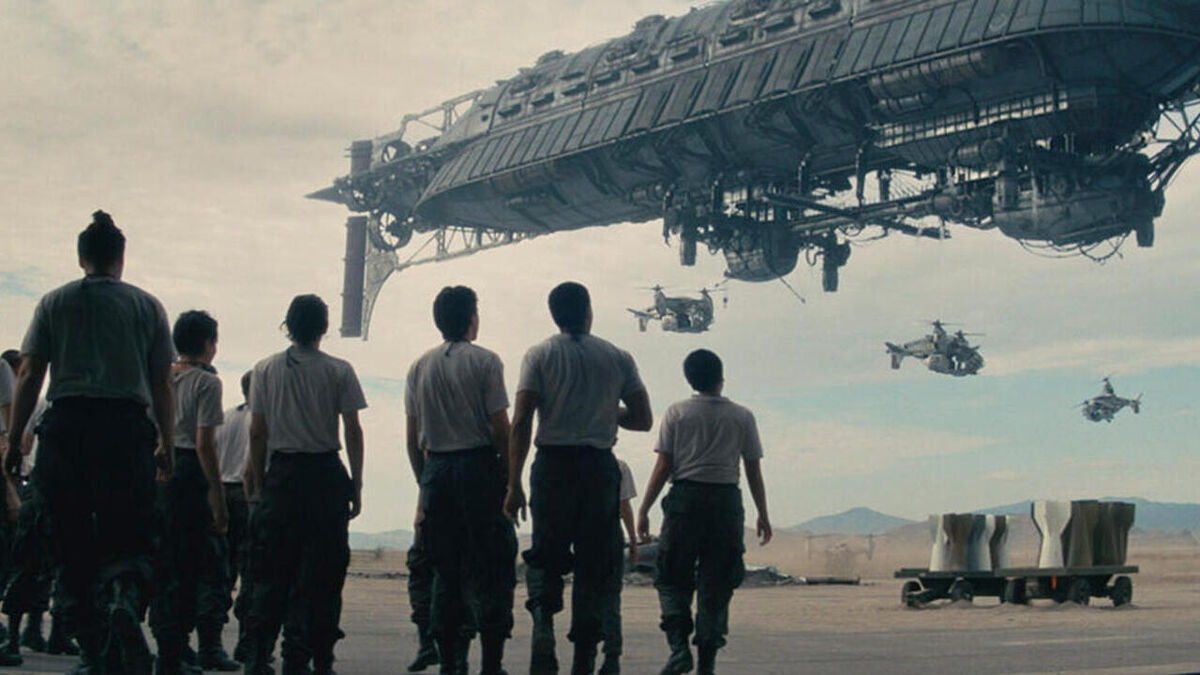
Graham Wagner was resolute in avoiding replicating story elements from the games. He emphasized the uniqueness of each player’s experience with games like Fallout. For instance, during his time playing Fallout 4, he shared a personal anecdote where he unexpectedly shot his in-game son. This incident stemmed from his preference for exploring the wilderness over following the main roads to level up his character. Consequently, he often found himself encountering storylines in a non-linear sequence. Wagner clarified that their approach was not about adapting an existing narrative but rather crafting a fresh storyline within the familiar game setting. He highlighted that this process of creating a unique narrative within a game world is a common practice among gamers.
Rewind to the Pre-Apocalyptic Era
Fallout’s depiction of America unfolds in a divergent timeline. It doesn’t just showcase the aftermath of destruction but also delves into the period before the nuclear doomsday. The world, now reduced to debris, boasted a blend of futuristic technology with the vintage charm and values of the 1940s and 50s. While the games hint at this through the remnants of the wasteland and the efforts of Vault inhabitants to replicate that era, the upcoming series aims to delve deeper into this pre-apocalyptic society. This aspect particularly intrigued Nolan, sparking his enthusiasm for the project.
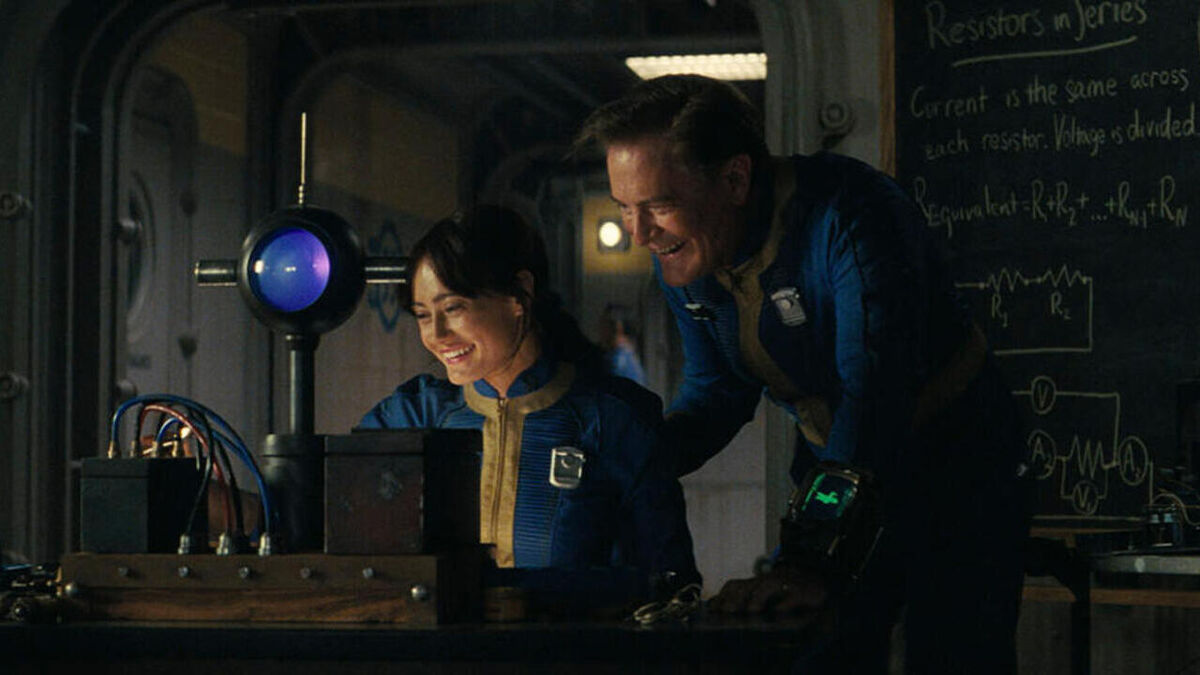
Satirical End World Exploration
Nolan expressed his enjoyment in creating two distinct worlds as a filmmaker. He highlighted the significance of exploring the world before the fallout, which mirrors current conversations within America. The pre-fallout America depicted in the games represents an idealized version of the country, untouched by events like Watergate, Vietnam, or Woodstock. This portrayal allows for a reflection on America’s history and its unaddressed issues, leading up to a dramatic conclusion after a century of unchecked dominance. The inclusion of pre-Wall of Sound music in the games adds depth to the storytelling.
In the Fallout series, a considerable amount of focus is placed on the pre-fallout world, particularly through the character played by Walton Goggins, known as “The Ghoul” in the post-apocalyptic setting. This exploration provides insight into the past world, its challenges, and the eventual downfall. The alternate reality presented in the games prompts viewers to ponder on current societal struggles and parallels with the depicted America.
Exploring the Characters in “Satirical End World Exploration”
Within the realm of “Satirical End World Exploration,” the character known as The Ghoul, portrayed by Goggins, stands out as a Skeletor-like figure, a formidable bounty hunter. Among the trio of main characters in the TV series, The Ghoul is the sole survivor from the pre-apocalyptic era, originally named Cooper Howard. The transformation from Cooper to The Ghoul is stark, both in personality and appearance, with a notable shift in prosthetics.
Goggins humorously reflects on the evolution of his character, stating, “As Cooper Howard, my time in the makeup chair was a mere 15 minutes. What can I say? Not much, except that Cooper Howard existed. There are intriguing revelations awaiting the audience, as The Ghoul embodies a distinct persona, while retaining traces of his former self. It’s a reminder that despite drastic changes, remnants of our past selves linger.”
Delving deeper into the theme of transformation, Goggins draws parallels between personal growth and the character’s journey, remarking, “Reflecting on my own life, the disparity between my 19-year-old self moving to Los Angeles and my current 52-year-old self is profound. While the essence remains unchanged, experiences shape us into entirely different individuals. In this narrative, the metamorphosis is catalyzed by a nuclear catastrophe, setting the stage for a retro-futuristic, post-apocalyptic world.”
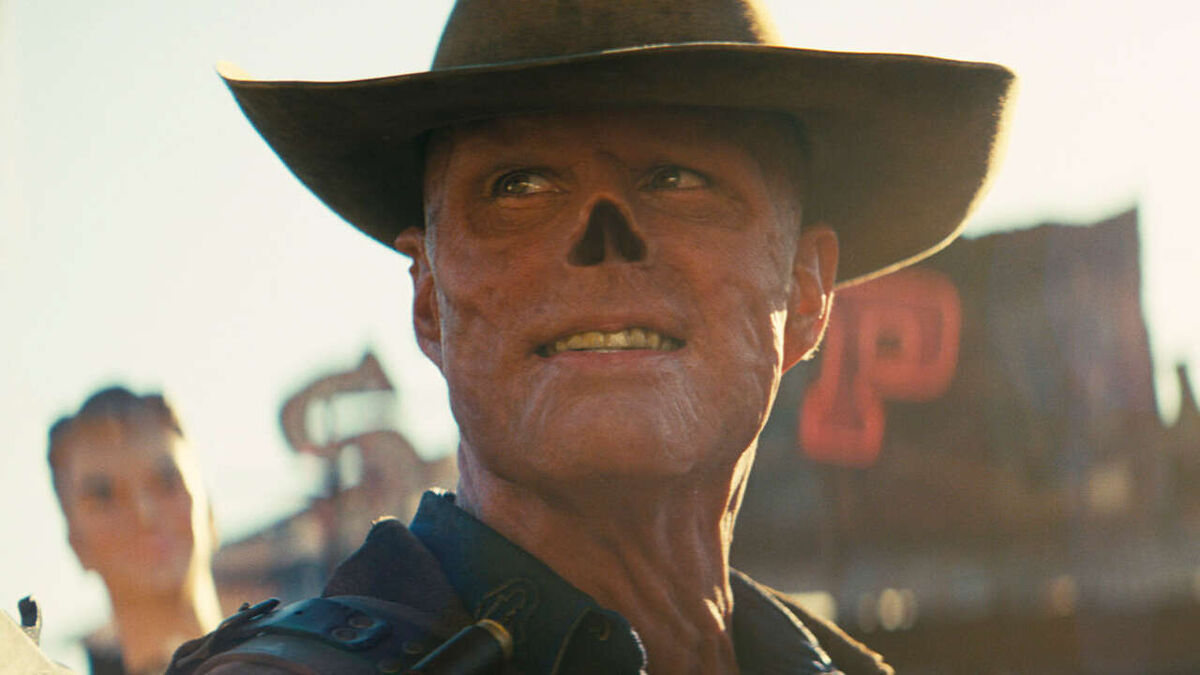
Satirical End World Exploration
Wagner explained the concept of creating a character that embodies two distinct personalities. He emphasized the challenge of portraying someone with 200 years of experience in a post-apocalyptic America, highlighting the transformation from one persona to another as a crucial aspect of the character’s journey.
On the other hand, Ella Purnell’s character, Lucy, represents a Vault Dweller with a strong belief in her ability to effect positive change. Raised in a retro-America environment that fostered optimism, Lucy embodies the all-American can-do spirit. Purnell described Lucy as hardworking, optimistic, and inherently believing in the goodness of people. The central question surrounding Lucy’s character development is whether she can maintain her idealism outside the vault.
Maximus, portrayed by Aaron Moten, seeks a purpose to anchor his beliefs. His allegiance lies with The Brotherhood of Steel, a militant group with a quasi-religious dedication to preserving technology. Moten highlighted Maximus’s need to find strength and power within the Brotherhood, emphasizing the allure of belonging to a group that aligns with his ideals, despite its violent tendencies.
Fallout’s Humorous Take on Post-Apocalyptic Worlds
When Fallout debuts on April 12, inevitable comparisons to The Last of Us will arise due to their shared video game origins. However, Fallout distinguishes itself with a unique mix of darkness, eccentricity, and humor that sets it apart from other post-apocalyptic narratives.
Actor Goggins, reflecting on The Last of Us, praised the work but emphasized the distinctiveness of Fallout‘s humor and tone. He highlighted the show’s ability to carve its own path without the need for comparison, noting the inherent wit present in the Fallout games. The series’ creators successfully captured the right balance of satire and exploration in their portrayal of the post-apocalyptic world.
Satirical End World Exploration
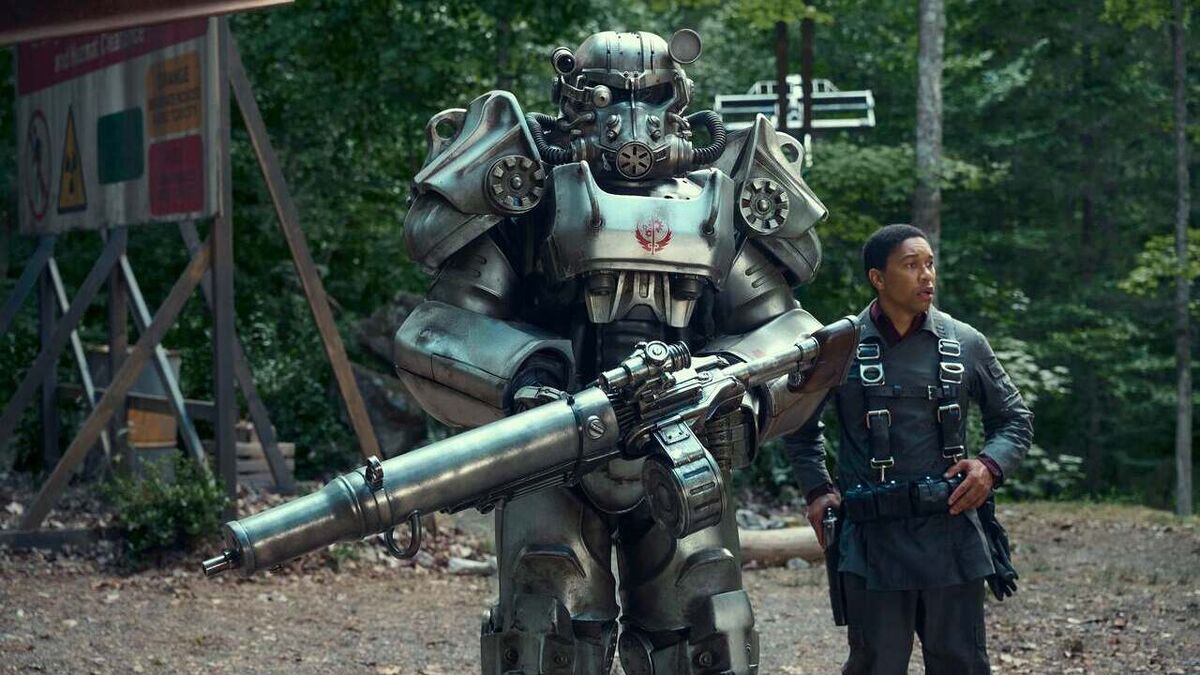
Satirical End World Exploration
Nolan found exploring the satirical elements of Fallout to be particularly intriguing. He expressed that adding a touch of humor to serious themes was crucial in capturing the essence of the game. The unique blend of darkness, weirdness, and humor in the game resonated with him, making it a standout experience.
Conversations with Todd Howard delved into the delicate balance of tones within the game, highlighting how amidst the apocalyptic setting, unexpected and humorous moments arise. Discovering remnants of past cultures scattered throughout the wasteland added a layer of optimism to the overall experience.
Fallout will make its debut on Prime Video on April 12, offering viewers a glimpse into this captivating world.
For more insights, check out the additional reporting by Chris Hayner.
Please visit our site 60time.com, and don’t forget to follow us on social media at Instagram.
